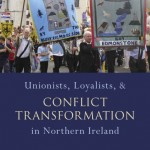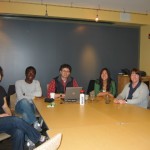by Josh Satre ’13
The following is an excerpt from one of my reflective journals recently- Enjoy!
Some thoughts on youth work
I was able to engage today, I had a nice conversation with one of the youth who had been in center consistently at the same times as me. I found him a really nice guy, he asked me where I was from ,and we started chatting. We ended up talking about sports (as is common in many of my conversations since I’ve been here…) and though I don’t really follow many, I did watch basketball this summer, with the other interns from the organization I was with. Thus, we had a long conversation about it, particularly about the exciting NBA finale this year. I felt a real sense of connection, which was new, and encouraged me greatly. I finally felt as if I could engage with the youth (some, at least), and continued to make connections, build relationships, and get to know people with a few of the youth today. There are some genuinely awesome youth, despite my frustration with some of the ‘troublemakers’ (a common term used here), I really believe that there are some fantastic young people here, and I’m saddened they get a bad rap due to a few of their peers making poor decisions.
Later on, when one of the staff was chatting with the youth, the dialogue went something like this:
“what’s the craic with those lads last night?” “I don’t know, they’re weirdoes.” “You know them” “—right, but I don’ hang out with them”
“what sort of thing would you be interested in?” “I don’t know…perhaps a drug and alcohol workshop?” “Would they be interested?” “–only if there were free samples! *laughter*. Naw, but they aren’t going to change, that’s just ‘the way they are’.”
The way they are….that phrase really struck me. Not sure why…but it bothered me. I understand it, and certainly agree that that is the way things it would seem. But it raises the question: is it the way things always will be? I don’t think it necessarily is. I don’t believe that the youth are making intractable choices, but the onus of changing their behavior lies with them and them alone. The staff in the community organization I’m placed with are awesome, and I think genuinely has their interests at heart, but they cannot forcibly alter or will the youth to change their decisions, that must come from within. I haven’t seen any evidence that ever shows that human nature is incontrovertibly unchangeable, as the entire point of faith (or lack thereof) is to illustrate that we have free will and that our belief structure is fluid, and that experiences shape it. There are things we cannot control, but since they happen anyways, it’s in how we deal with them that matters. The way I handle a certain situation is what changes who I am. Gandhi once said that
““It’s the action, not the fruit of the action, that’s important. You have to do the right thing. It may not be in your power, may not be in your time, that there’ll be any fruit. But that doesn’t mean you stop doing the right thing. You may never know what results come from your action. But if you do nothing, there will be no result.”
Basically, it’s not within our power to control the results or future beyond a limited extent, only our actions in the present. I learned this is relevant to the local organisation’s case as well, the reason they are in [the community I’m placed in] (the actions that they are taking) is well intentioned, but they cannot control the youth’s response. On the one hand, it is up to the youth to change, but on the other, it is a decision to continue to provide services anyways, even if they don’t reciprocate. I feel as if the philosophical aspects and ideal ‘moral’ outcomes differ slightly from the pragmatic, funding based constraints. Ideally, the [the center I’m working in] would remain open, and thrive (even if it doesn’t happen immediately). The hard thing is balancing this with a practical reality is that this outcome is unlikely. Thus, the question is, where do we go from here? I literally have no idea what will happen, but I’ve learned to take it one day at a time, doing what I can in an everyday context, doing whatever it takes to make a difference in someone’s life today, even if I can’t see the long term impact. I will make every effort that I can to engage, because I can control my own actions towards others, and place the burden of responsibility on myself. I
cannot force others to change, but I can love them all the same (in spite of their actions). Note that this doesn’t mean endorsing negative actions, in fact, the condemnation of inappropriate behavior is just as loving, even if people can’t see it. I quote my earlier conversation with [one of the staff], comparing good politicians with parents “that’s the thing about doing something in someone’s long term interests, even if it’s unpopular. You’re always going to be hated, even if it’s well intentioned, and they might look back and approve, they won’t like it at the time. Sort of like parents—they love you, but man you get frustrated at them at times for doing something that seems ‘unfair’, despite the fact that it’s in your interests at the time. I guess it’s because we didn’t know it at the time?” It is my attitude towards others that I can control, even if I don’t know what other points of view people will take towards it.
























